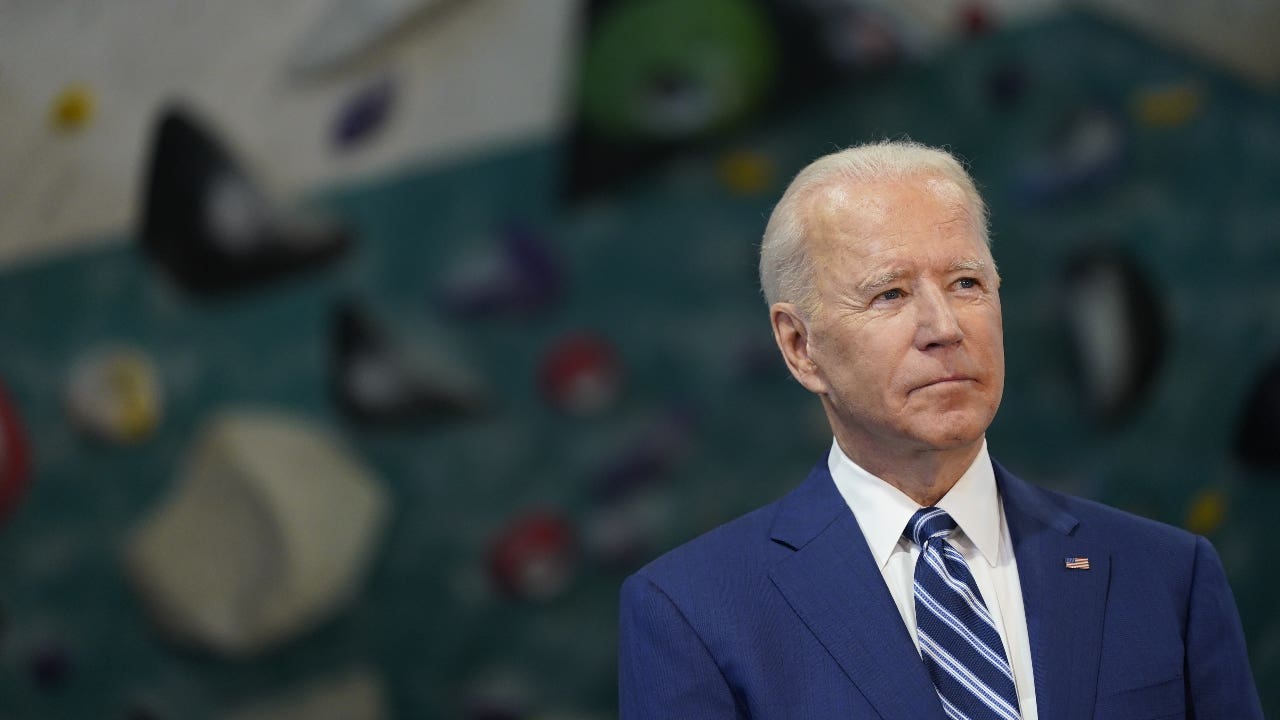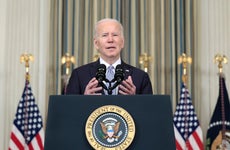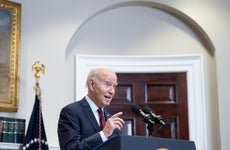2023 higher education budget aims to promote educational equity

The Bankrate promise
At Bankrate we strive to help you make smarter financial decisions. While we adhere to strict , this post may contain references to products from our partners. Here's an explanation for .
On December 23, 2022, Education Secretary Miguel Cardona issued a statement confirming the approval of the 2023 bipartisan funding package, also known as the Fiscal Year 2023 Omnibus Appropriations.
The funding increase aims to impact the underserved student population and promote educational equity in 2023 through increased resourcing to minority-serving institutions, student loan servicing and the maximum annual Pell Grant amount.
Here’s what’s included in the approved budget allocations and how it could impact the future of student loan forgiveness.
The budget aims to make higher education more accessible
Though student loan forgiveness isn’t included in the budget, a press release from the Education Department states that the package “reflects the Biden-Harris Administration’s commitment to increasing equity in educational opportunities and outcomes for our students.”
The new funding aims to invest in post-high school students, both those who wish to earn a college degree and those who choose alternative career pathways. Cardona adds, “We are also committed to delivering a better-functioning and more equitable student loan system that makes higher education more affordable and attainable for all borrowers.”
Here’s how the Education Department plans on using the roughly $4 million discretionary funding increase.
Increase the maximum Pell Grant value
The Education Department will increase the maximum Pell Grant award amount to $7,395 for the 2023-23 financial aid award year. This $500 boost is the largest increase in 10 years and according to Cordona, “lays the groundwork for doubling the grant by 2029.”
“The Department will continue assessing funding approved for Federal Student Aid operations and remains committed to providing reliable access to federal aid, including Pell Grants,” read the press release.
Invest in low-resourced institutions
The provisions allow for $137 million in funding to enhance institutional capacity at low-resourced institutions — including community colleges — and historically Black colleges and universities (HBCUs), tribal colleges and universities (TCUs) and minority-serving institutions (MSIs). Within this category, $50 million is allocated toward expanding research and development infrastructure at HBCUs, TCUs and MSIs.
The package also includes a $18.4 billion increase for the Title I program. Title I grants federal funds to qualifying schools that serve a large percentage of students from a low-income background. This increase pushes the Biden administration closer to its commitment of tripling Title I funding.
Increase funding for underserved student populations
The budget also allocates $150 million to support Full Service Community Schools, effectively doubling the funding for the program. “These investments in our students and teachers will help our schools and communities thrive,” read the press release.
Plus, the Education Department aims to promote college completion and retention rates through boosting programs – like TRIO – whose main goal is to support individuals from disadvantaged backgrounds.
$54 million more will go toward federal TRIO programs and $10 million more will be allocated to the federal GEAR UP Grant; a program that helps low-income students prepare for college.
Student loan forgiveness not included
Student loan forgiveness is currently on hold while the Supreme Court discusses the merit of the leading lawsuit against the plan. The highest court of law will review oral arguments next month, with the official announcement expected to come late Spring or early Summer 2023.
The Biden administration has stalled the program until the litigation is resolved and has taken down the application from the website, so borrowers can’t currently apply.
Forgiveness was absent from the budget proposal that was released in April 2022, and not surprisingly, funding for the debt relief plan has been omitted from the approved 2023 funding allocations. This absence of funds, in tandem with the current litigation, makes mass federal student debt forgiveness an unlikely possibility.
Education Department requested $13 billion more in funding
While the Education Department is set to receive nearly $4 billion more in discretionary funding for the 2023 fiscal year, the administration requested $20 billion to support the Office of Federal Student Aid (FSA).
Although the amount was lower than officials may have hoped for, the federal budget increase allocates 18.4 billion for the Title I program, doubles the funding for full-service community schools and invests in the nation’s schools through several grant programs.
Learn more:
Related Articles

New Biden student debt plan could forgive up to $20,000 in interest for millions

President Biden just forgave another $5.8 billion in student debt: Here’s who benefits

Biden administration forgives $1.2 billion in student loans through SAVE Plan

Biden launches “Most affordable student loan plan ever” weeks before payment pause ends